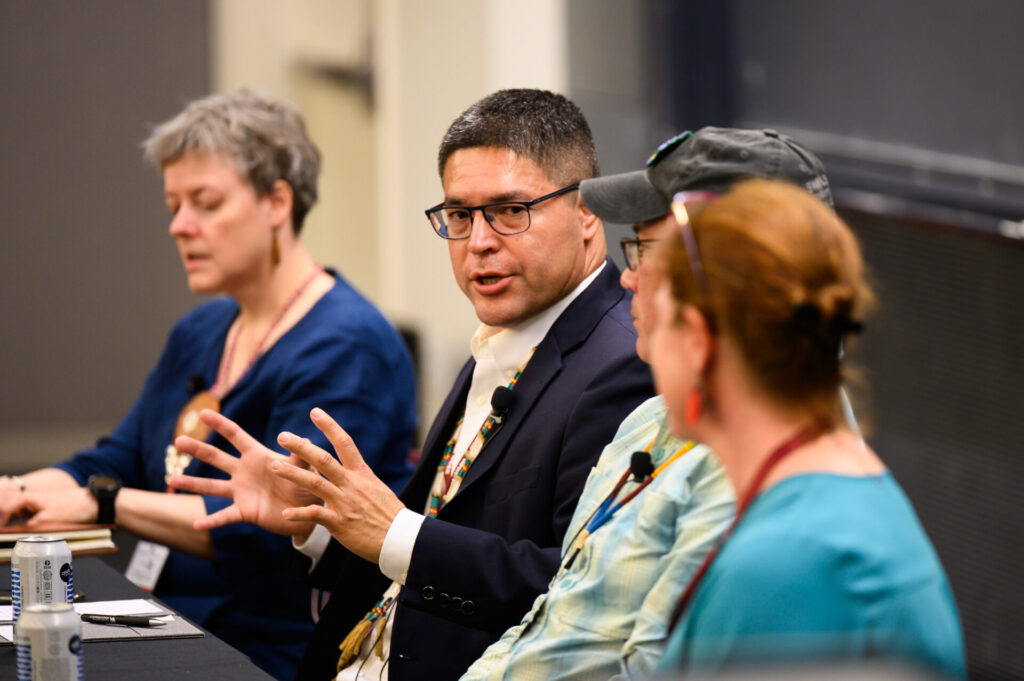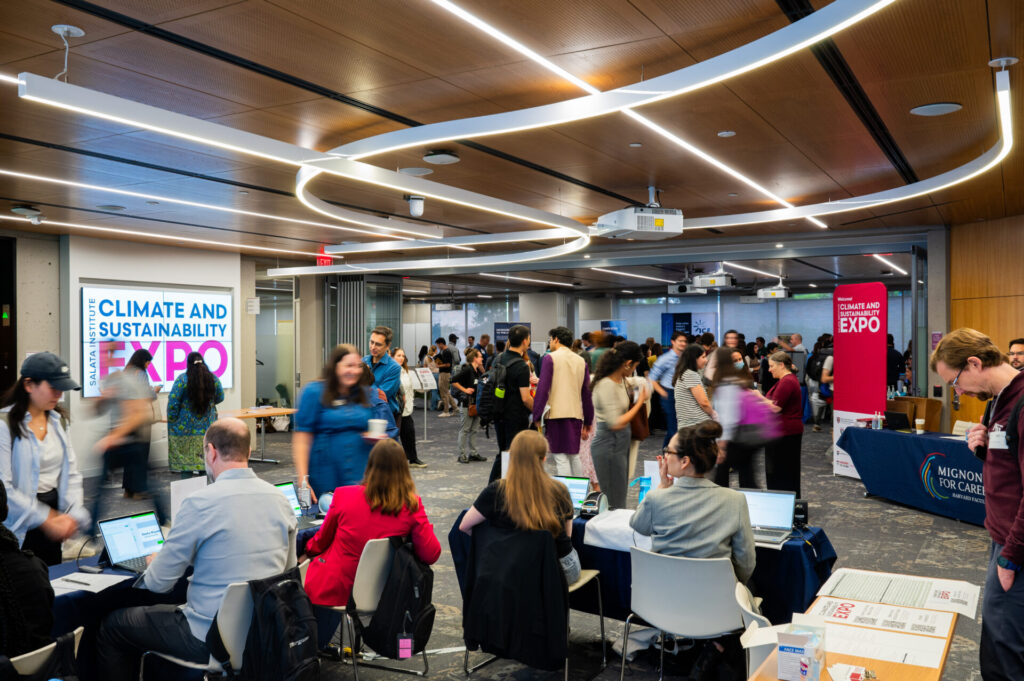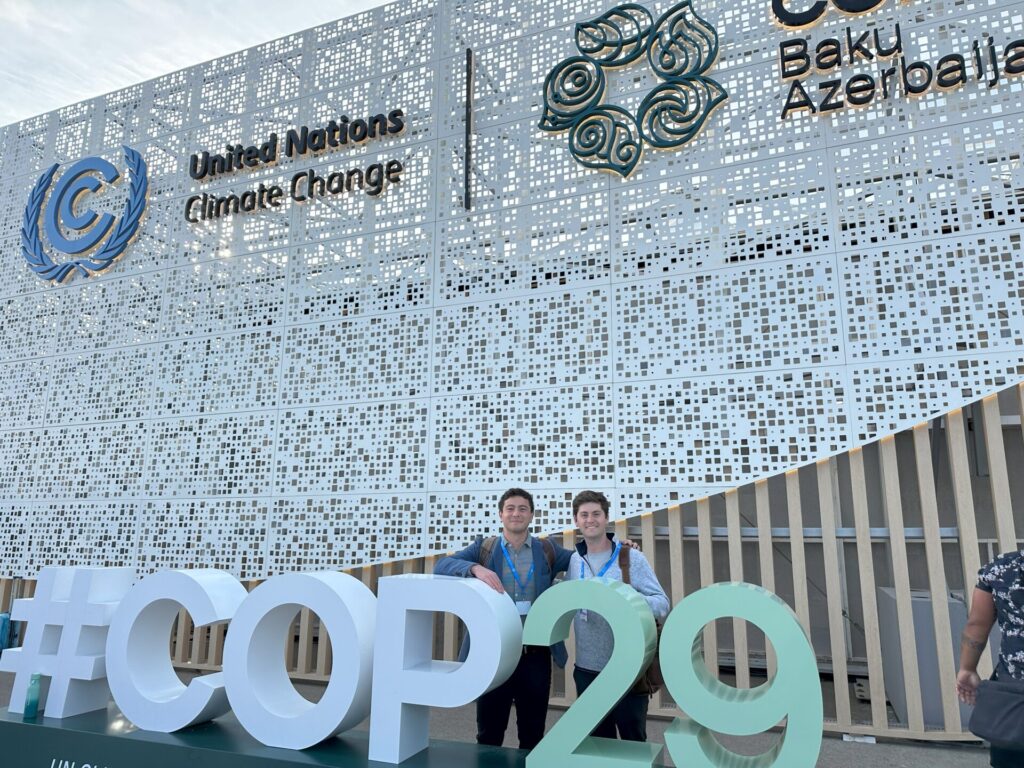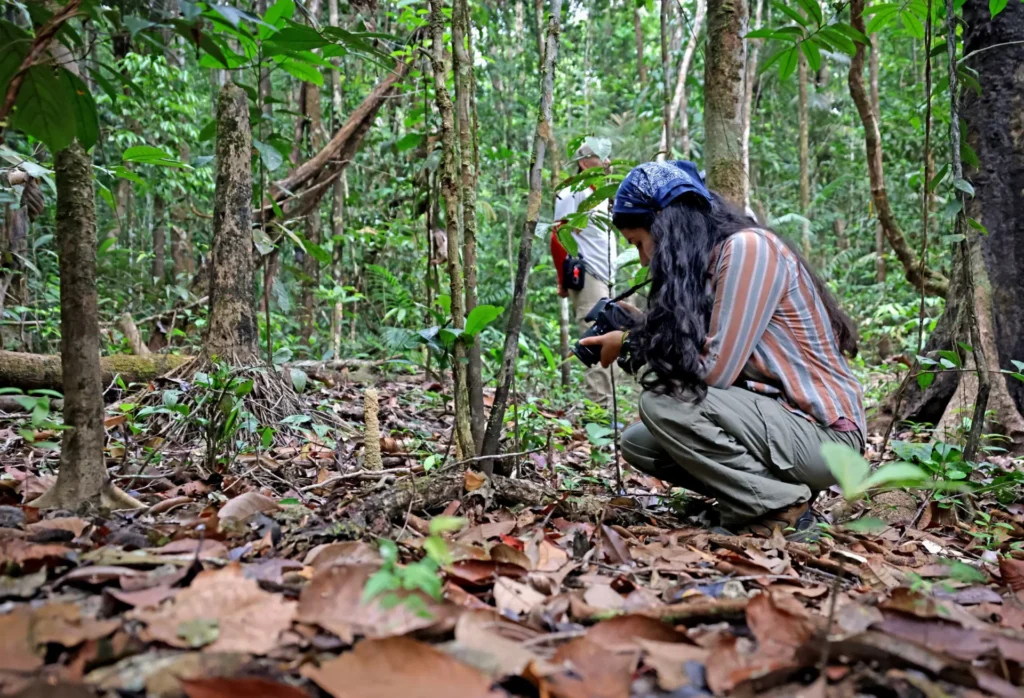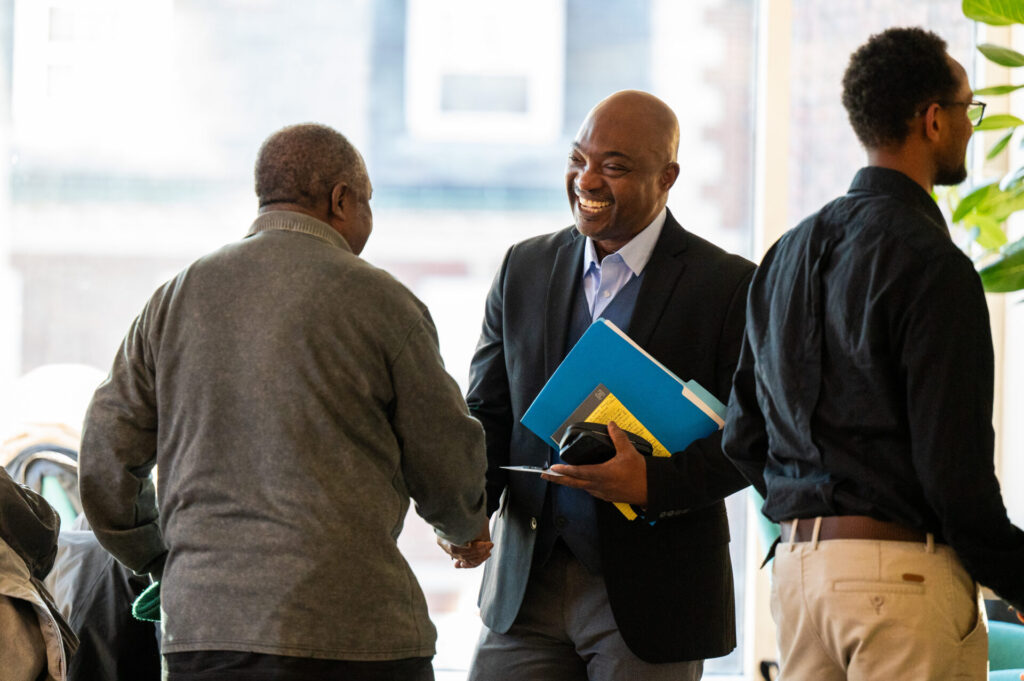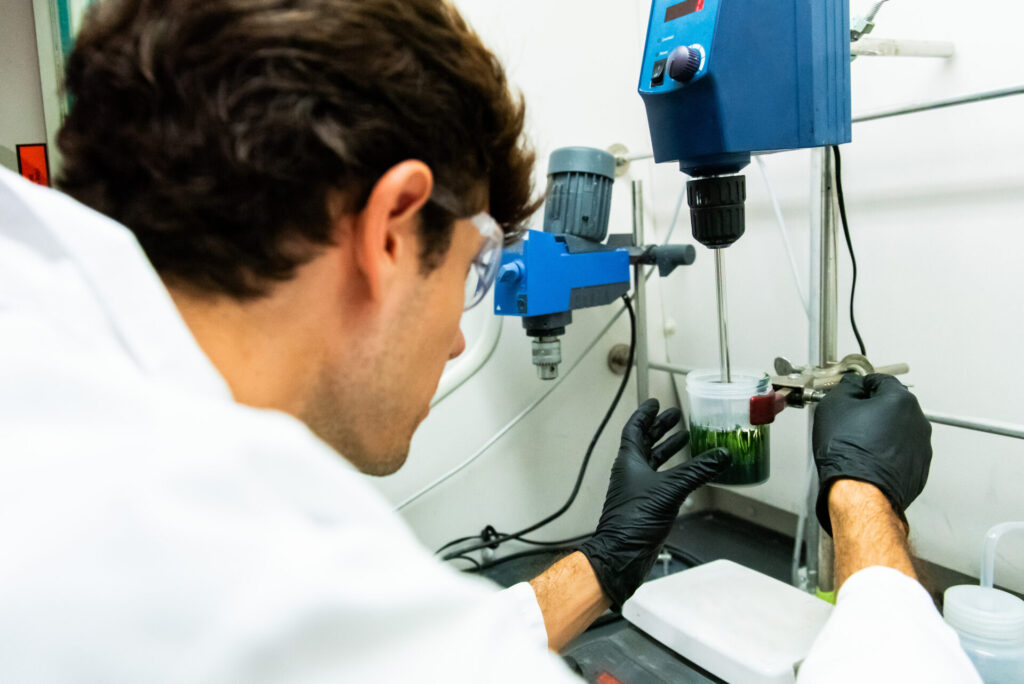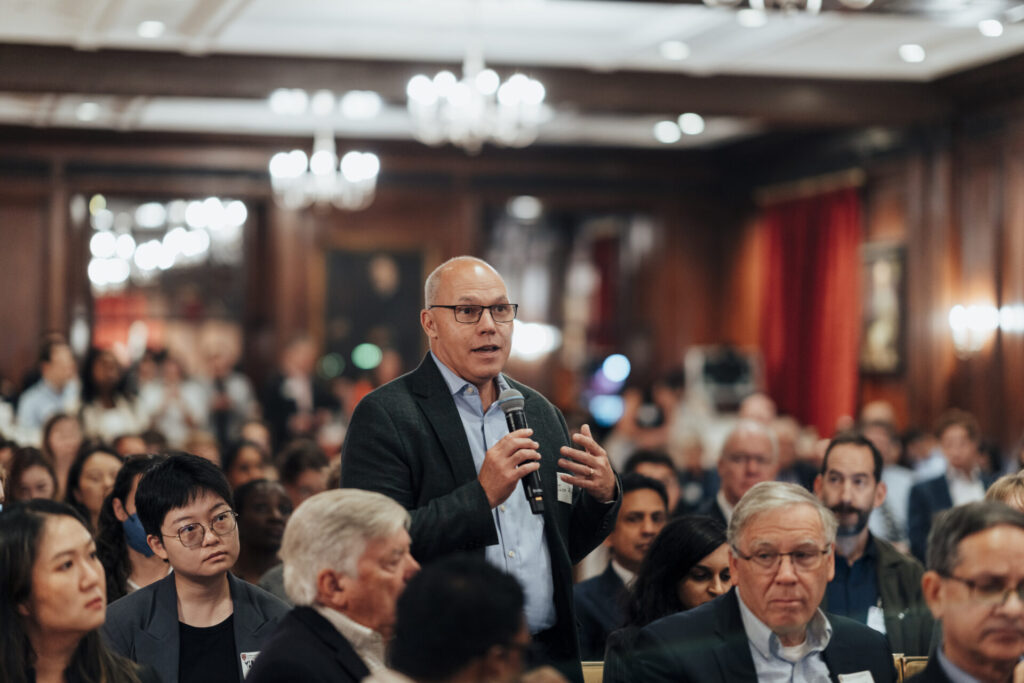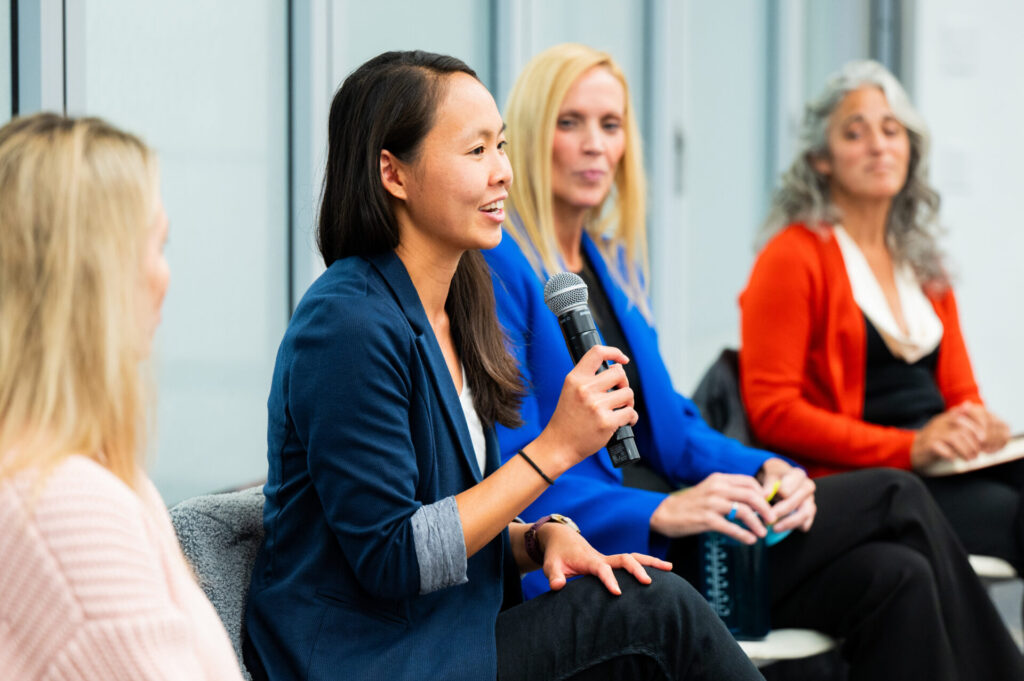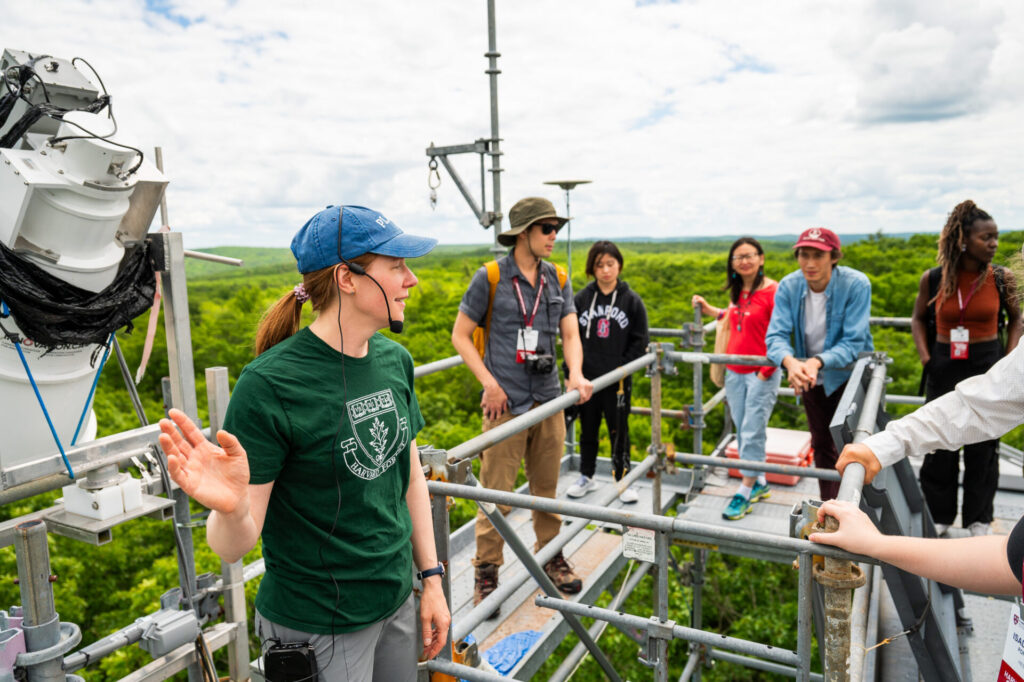Salata Institute 2024 Year-In-Review
Advancing Climate and Sustainability Research
Reducing global methane emissions
The Reducing Global Methane Emissions cluster has already initiated 20 research projects involving faculty, postdoctoral researchers, and graduate students from across campus. Some highlights from the cluster’s work in 2024 include:
- 600+ stakeholders were convened by the cluster via meetings, trainings, and events, including COP29 and New York Climate Week.
- Scientists supported by the cluster created a high-resolution inversion of satellite data to quantify emissions from urban U.S. landfills, a significant and under-reported source of methane.
- The cluster is developing an accurate, wearable sensor to track methane emissions from cattle, while agricultural economists are conducting research to better assess the effect on methane emissions in transitioning from flooded to dry rice cultivation in China.
- 135 external partners were trained in the use of methane emissions tracking tools to help identify and address these potent greenhouse gas emissions.
Access many more updates, white papers, reports, and resources on the cluster’s website.
Advancing climate adaptation in South Asia
This cluster is addressing two significant barriers to climate adaptation in South Asia: a lack of actionable, accessible data; and research gaps stemming from a lack of coordination among a large, fragmented research community spanning many disciplines. Some highlights from the cluster’s 2024 work include:
- Over 100 new datasets were published to facilitate local planning and response surrounding extreme heat.
- Over 400 stakeholders were convened by the cluster at interdisciplinary workshops and meetings in India and the U.S.
- The cluster launched the Community Heat Adaptation and Treatment Strategies longitudinal study, a first-of-its-kind project that evaluates how heat and humidity impact the lives and livelihoods of the working poor in the Global South.
Read more about the cluster’s work here.
Strengthening corporate net-zero targets
While corporate net-zero commitments are surging, there is a lack of information and analysis about whether these corporate goals result in real emissions reductions. The corporate net-zero targets project is developing new tools – including groundbreaking firm- and plant-level datasets – and strategies to better understand and strengthen corporate climate action. Some highlights from the cluster’s 2024 work include:
- Cluster researchers are constructing tools and datasets to provide a comprehensive picture of companies’ climate commitments and emissions profiles.
- To consider the effect of state policies on corporate climate commitments – effects that are not currently well-understood – researchers also constructed an innovative dataset of state clean energy and climate policies.
- Cluster publications on the economic and policy context of corporate net-zero targets, including the role of offsets, informed U.S. policymakers working in this area.
Read more about the cluster’s work here.
Advancing climate adaptation in the Gulf of Guinea
Severe impacts of sea-level rise are already a reality across Africa and, in particular, the Gulf of Guinea. Working with local counterparts and communities in Abidjan, Accra, and Lagos, this climate research cluster on adaptation in the Gulf of Guinea is producing new data measuring sea-level rise and its associated costs in the region and identifying viable adaptation strategies. Some highlights from the cluster’s 2024 work include:
- In May, 2024, field teams from the three countries conducted field surveys on fishing and the community’s understanding of sea-level rise, erosion, and flooding.
- The cluster produced a report on the decline of fishing as a livelihood in the region, which was covered extensively in the African press.
- The cluster hosted a workshop bringing together researchers from the region to discuss fieldwork in Nigeria, Ghana and Côte d’Ivoire.
Read more about the cluster here.
Collaborating with communities navigating energy transitions
The Strengthening Communities research cluster examines the social costs and benefits of changes in the energy system, and proposes concrete ways for communities, firms, and governments to navigate the wide range of fiscal, legal, regulatory, and development choices they face. In 2024, the cluster produced three major publications:
- Crossed Wires: A Salata Institute–Roosevelt Project Study of the Development of High-Voltage Transmission Lines in the United States focuses on the regulatory, planning, and siting obstacles to building new transmission capacity and outlines a national, coordinated strategy to tap into the nation’s considerable wind and solar energy potential.
- How Grid Projects Get Stuck: Four Case Studies in Long-Distance Transmission Development, examines four specific projects and lessons about the political, social, and economic obstacles to transmission development, as well as ways to improve the public engagement process.
- Federal Land Leasing, Energy, and Local Public Financeshighlights the paradox of how legislation that allocates revenue from fossil fuel energy projects on federal land to states and local communities contrasts with renewable energy projects, where revenue is predominantly retained by the federal government.
Read more about the cluster here.
Supporting early-stage research through seed grants
The Salata Institute Seed Grant Program supports new research, encourages new interdisciplinary partnerships, and enables faculty whose work is not normally in climate and sustainability to apply their expertise to the climate challenge. In 2024, the Institute expanded this program to support a total of 37 research projects.
New seed grants awarded in 2024 included:
- New Aerial Monitoring Platforms for Wildfires
- Converting Wool Waste into Building Insulation
- Harvard Workshop on Insurance and Climate Change
- Climate Stress: Mapping Mental Health Vulnerabilities Using New Data-Driven Insights
- The Political Economy of Energy Transitions in the Middle East
- From Waste to Taste: High-throughput Screening for Microbes to Transform Dairy Waste into Sweet-Tasting Proteins as Novel Sugar Alternatives
- Labor in the Just Transition
- Analyzing Zoning Codes to Identify Sustainable Locations for New Housing
- Rights of Nature and Climate Change
- A Performance Evaluation Methodology for Nature-Based Adaptation Solutions
- Direct Air Capture of CO2: Redox-Mediated Salt Splitting
- Quantifying the Magnitude of Zoogeochemical Effects on Vegetation Carbon Stocks
- The Changing Composition of Soil Carbon Inputs: Root Exudate Responses to Climate Change
- Adaptive Climate Migration: A Case Study of Resettlement from the Solomon Islands to Canada
- Climate Change and Volatility in Food Supply: A New Workshop
- A Meeting of the Macroeconomics Minds on Climate
- International Workshop on Climate-Resilient Development in Southeast Asia
- African Perspectives on International Climate Law – A Symposium
Improving electric vehicle charging
Widespread electric vehicle (EV) adoption is critical to confronting climate change – but a lack of sufficient public charging infrastructure is holding many potential EV drivers back. In 2024, the joint MIT-Harvard initiative on EV charging gathered researchers to drive collaboration in this area and produced new guides to help cities improve charging infrastructure.
Supporting new climate technology
In 2024, Harvard’s Office of Technology Development and the Salata Institute announced a first round of awards via the Climate and Sustainability Translational Fund to accelerate the pace of startup formation for Harvard research teams addressing climate and sustainability challenges. The projects awarded included:
- Bacteria Strains to Improve Carbon Capture and Storage
- Electrified hydrogen peroxide production and advanced green oxidation
- Bionic Leaf-C at manufacturing scale-up
- Photonic materials for sustainable packaging
Understanding climate change and health
In 2024, the Salata Institute and Harvard Global Health Institute announced the appointment of a new Burke Climate and Health Fellow. Dr. Colleen Lanier-Christensen will conduct an historical analysis of the Clean Air Act of 1970, exploring how a disciplinary divide may have helped slow U.S. climate action for decades.
Previous HGHI-Salata Burke Climate and Health Fellows continued their work this year, looking into the impacts of Arctic thawing on subsistence livelihoods in the permafrost peatlands of Sápmi and the impacts of air pollution in the U.S. on children.
Swelling the ranks of climate faculty at Harvard
Harvard University’s ability to drive meaningful climate solutions hinges on its ability to attract and empower top climate faculty across a wide range of disciplines. Over the last year, the Salata Institute has engaged Schools in a University-wide effort to prioritize the hiring of climate-focused faculty who promise to deepen and expand Harvard’s climate contributions. These efforts are already paying off. In 2024, eight new climate faculty were announced, with more on the horizon.
Making Harvard research available to the public
In 2024, the Salata Institute made Harvard climate and sustainability expertise available to the wider world with over 90 hours of lectures, talks, and conversation published to YouTube. Tune in anytime to hear from Harvard faculty about everything from climate and sustainability basics to the latest debates surrounding solar geoengineering to what Trump’s election will mean for climate change.
Research to Action
Through its Climate Action Accelerator, the Salata Institute works to translate Harvard scholars’ ideas and insights into meaningful action through convenings, partnerships, and engagement. In 2024, the Accelerator brought key stakeholders together and put actionable insights directly into the hands of climate and sustainability decisionmakers.
Harvard Climate Action Week
Over 600 climate and sustainability decisionmakers and stakeholders gathered with Harvard faculty and researchers on campus, with thousands more tuning in online, for the second Harvard Climate Action Week, advancing conversations about hard-to-abate sectors, carbon pricing, environmental justice, traditional ecological knowledge, voluntary carbon markets, and much more.
Engaging and Key Stakeholders
In 2024, the Accelerator brought together key stakeholders and decisionmakers to discuss pressing climate questions across a wide range of topics. These convenings included:
- A full day of events at Climate Week NYC
- Climate policy meetings with leading lawmakers in Washington D.C.
- A study group of city planners exploring city-level nature-based climate adaptation plans
- A gathering of partners involved in Harvard University’s environmental justice work
- Senior government officials, Harvard faculty, and U.S.-based practitioners discussing African perspectives on international climate change law
- A roundtable with Cassie Flynn, Global Director of Climate Change at the United Nations Development Programme
- Several gatherings of Harvard alumni interested in engaging with climate and sustainability issues
- State-level practitioners working on Direct Current (DC) Electric Vehicle (EV) charging infrastructure
Strengthening Climate Education and Professional Opportunities for Students
The Salata Institute is working to ensure that a Harvard education prepares students for leadership in a world facing climate change. In 2024, the Institute supported over 900 students through funding, internships, and professional development programming.
Funding research, internships, and collaboration
In 2024, the Institute offered a wide range of direct support to students and student organizations interested in climate and sustainability:
- 360 students were supported through collaborative and independent student project funding.
- 54 travel grants for professional development and education were awarded.
- 11 students traveled to COP29 with support from the Institute
- 46 internships were supported by the Harvard Climate Internship Program and the Salata Climate Policy Summer Internship Program
- The Institute launched an expanded research funding program, which will support the work of students across the University
Launching careers
Beyond these in-depth climate experiences, the Salata Institute also brought leading climate professionals to campus in 2024 through two major professional development programs:
- The Institute’s Careers in Climate Action speaker series brought leading climate and sustainability professionals to campus to share insights with students.
- The second Salata Institute Climate and Sustainability Career Expo connected over 500 students with dozens of leading climate and sustainability leaders and organizations.
Thank you – and stay in touch!
The Salata Institute is deeply grateful to its partners across Harvard University and beyond who make this work possible. We look forward to continuing to expand the Institute’s efforts in the new year.
If you have not already, please subscribe to our email newsletters and stay tuned for more events, opportunities, research news, and more.
